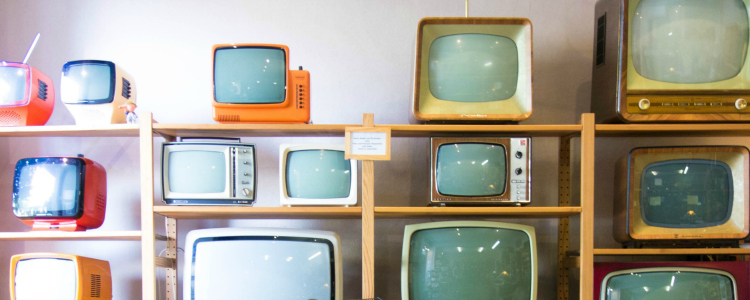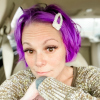Why NOT to Watch The Biggest Loser Reboot
In my twenties I made a decision that shaped the rest of my life. I participated in a reality TV program called The Biggest Loser. It was in its infancy at the time, only on its third season. I had no idea what to expect when I signed on. I just bought into the idea that to be healthy or happy I needed to be smaller. Instead, I became unhealthier, developed disordered eating, and hated my body more than I ever had.
Editor’s Note: CW for behaviors mentioned.
In my twenties I made a decision that shaped the rest of my life. I participated in a reality TV program called The Biggest Loser. It was in its infancy at the time, only on its third season. I had no idea what to expect when I signed on. I just bought into the idea that to be healthy or happy I needed to be smaller. Instead, I became unhealthier, developed disordered eating, and hated my body more than I ever had. Not only did I very publicly display my disordered eating and exercise habits, I was quite literally celebrated for them. Diet Culture is a powerful drug.
The entire experience affected the rest of my life to date. Because of the behaviors I continued after the show, I placed my son in danger and almost lost him during my pregnancy. I would like to tell you that experience when I was pregnant led to an epiphany that stopped the destructive habits I developed from my experience on The Biggest Loser, but I would be lying. After his birth, I continued to struggle with my disordered eating and exercise routines. My earliest memories with my son are clouded by sobbing as I strapped him to me in a carrier while on the treadmill to force my exhausted, recovering body to work out. I lost those precious months with my son to my disorders. I also started to wake up to what I was doing, what I was losing, how I harmed myself, and how the myth I helped perpetuate on television harmed others.
I spoke out against The Biggest Loser. I was the lone contestant voice doing so for almost a decade. I received hate mail, and the show threatened to sue me repeatedly, but I couldn’t sleep at night if I didn’t use the small platform I had to right the wrong I did to people with my participation. I connected with people in my recovery who showed me that my anecdotal experience was also backed by academic evidence about the harm The Biggest Loser does.
I knew how the show could harm a participant (and had my suspicious and personal experience validated by the 2016 NIH study of contestants), but I also learned how viewing the show hurt viewers and fat people. Viewers felt worse about themselves after watching and treated fat people with disgust and derision after viewing the dehumanizing treatment of contestants on the show.
I was disgusted with myself for adding to the oppression of others. I took that disgust and raised my voice even louder in opposition. I doubled down on speaking out. I conducted peer reviewed academic research underscoring the harm the show does, and I was finally joined by other brave contestants willing to speak out. I was relieved when, in 2018, I believed that the overwhelming anecdotal participant evidence, the academic evidence, and the strong voices raised against this harmful show meant it had finally died (It ended after its seventeenth season; I’ve never watched an entire season of the show—not even my own).
But The Biggest Loser is back, with its eighteenth season scheduled to air next week. When I heard the news, I sobbed. I was exhausted. I briefly wallowed in thoughts that all of my hard work—the death threats I endured, the threats to my financial well-being, and the trauma from all my family weathered to fight this battle—meant nothing. Then I received a message from a woman in recovery from an eating disorder who thanked me for speaking out, and credited my doing so for a small part in saving her life. So, I regrouped and realized that all the return of this show means is that my work isn’t done.
My work in my own recovery will never be done. Others feel differently, but for me I know that recovery from disordered eating will be a lifelong process for me. I also realize that the return of The Biggest Loser means that my work in combating the harm I did during my time there is not done either. But, unlike fighting my disordered eating, I know there will be an ending point in my battle against The Biggest Loser. The world has and is continuing to change since my time on reality TV, and I am not alone in this work now.
Recently a former trainer on The Biggest Loser went after Lizzo, once again perpetuating the myth that a person’s size is indicative of their health. The irony of a trainer criticizing Lizzo’s body and health, AND having participated in encouraging disordered habits that permanently damaged my health while also leading thousands of people in cheering for how my body looked when I was so unhealthy I ended up in the hospital afterward, did not escape me. The show—no matter how they reframe it to pretend that it isn’t a perpetuation of fatphobia, Diet Culture, and disordered eating and exercise— is still perpetuating those things and is still dangerous to participants and those who watch.
The show was harmful to me personally. I personally harmed people with my participation. I helped to glorify unhealthy and disordered habits. I’m still here. I’m still recovering, and I will still fight The Biggest Loser’s existence. This time, though?
I’m not alone. I’ll see you out there.
Here are a few ways you can join me:
- Sign and share this petition.
- Do NOT watch the show—not even “hate watch” it—because viewers (of any kind) is what they need to stay on the air.
- Do not buy products from the show or people associated with the show. These people care about profits, not health.
Kai Hibbard is a former contestant on The Biggest Loser, a licensed social worker (LMSW), fat activist, motivational speaker, and writer. When not providing individual and couples therapy or publicly combating mass media hypocrisy and body shaming, she uses her voice to give presentations to shed light on the issues close to her heart. Through well researched and empirically backed discourse she encourages people to think independently and critically about the messages they are being sent in the media. She urges people to be comfortable in their own skin, embrace who they are, and own the space they take up in the world. You can purchase her book “Losing It” here.





